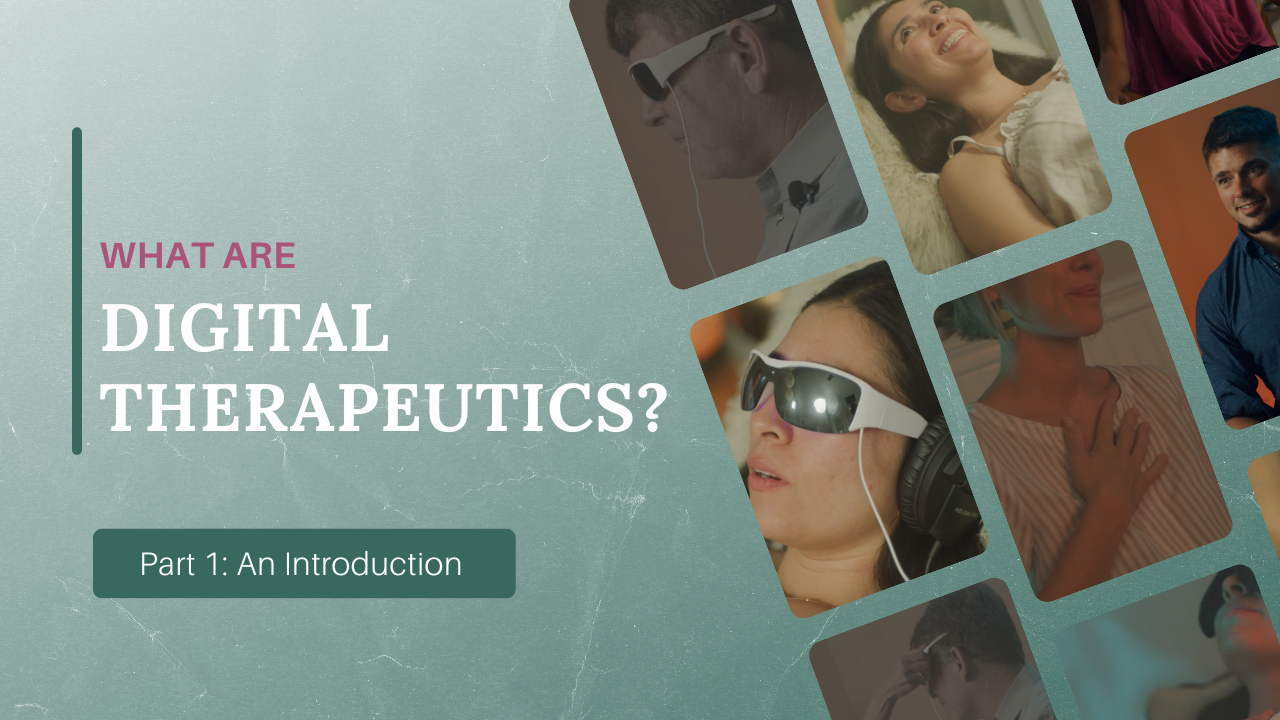What are Digital Therapeutics? (Part 1: Introduction)
It can feel confusing and overwhelming when there aren’t clear solutions to our health problems.
Mental health, in particular, is challenging to navigate because unlike a physical problem–like a sudden pain in a knee–we can’t use an X-Ray to figure out what the problem is: it often requires time and energy to inquire “within” to understand a mental health problem, as well as time and energy of a community of support like therapists, friends, and family.
Clinicians play a crucial role in addressing mental health problems, but there’s just not enough of them: according to the Association of American Medical Colleges more than 150 million people in the US live in mental health professional shortage areas. The large need for mental health combined with a shortage of practitioners is taking a toll on psychiatrists, psychologists, social workers, and counselors, who are experiencing higher rates of burn out and secondary trauma. The lockdowns resulting from the COVID-19 pandemic also highlighted the massive unmet need for better and easily accessible mental health solutions.
These are some of the reasons why recent years have seen so much industry, research, and government support for digital therapeutics, or “DTx”.
Digital Therapeutics, or DTx, are non-drug, clinically-validated therapies that take advantage of new technologies to bring healthcare directly to patients.
Unlike wellness software, like guided meditations or psychological education platforms, DTx are powerful medical tools that meet a high standard of safety, efficacy, quality, and clinical impact. DTx products are designed to monitor, treat, manage, or prevent health problems.
Real Examples of Digital Therapeutics in the Mental health space:
Photo courtesy of Big Health.
Daylight is a Cognitive Behavioural Therapy (CBT) software manifesting as a life-changing digital therapeutic for anxiety.
Photo courtesy of EndeavorRX.
EndeavorRX is the only doctor prescribed video game treatment for kids with ADHD.
Photo courtesy of RelieVRX.
RelieVRx (formerly EaseVRx) is the first and only FDA-authorized at-home immersive virtual reality (VR) pain treatment indicated as adjunctive treatment for chronic lower back pain.
Entheo Digital’s SoundSelf
SoundSelf engages your voice in a biofeedback loop enhanced by vibro-acoustics and light therapy. It’s a participatory sound bath that activates all of your senses, and has been measured to produce transpersonal states of consciousness after 15 minutes of immersion.
DTx can be so effective that even insurance companies, especially forward-thinking self-insurance models of large employers, are developing novel approaches to getting people digital health solutions.
Until recently, most mental health DTx used smartphone or tablet hardware to deliver software solutions that took advantage of previously-proven psychotherapeutic modalities such as CBT. The efficacy of these DTx tended to be significant in managing or monitoring a mental health problem, but not in producing large effect sizes that showed improvements in the underlying neurophysiological, psychological, or social factors of mental health.
One reason for this is that smartphone-based apps are limited by the inherent interactivity capabilities of that medium. They’re great for accessing content anywhere, but smartphone DTx tend to be “cogni-centric”: they may be useful for mild perspective changes, but it’s hard to design phone apps that are transformative at deeper mind-body levels. Another reason is that previous approaches to mental health required a regular, persistent, and long-term therapeutic relationship for them to actually generate real transformative results.
In the next post in this series, I will explore the next-gen of emerging DTx solutions–often standing on the shoulders of decades of academic research (as in Virtual Reality applications)–that are advancing novel therapeutic mechanisms enabled by recent advances (and lower costs) of wearables, AI, and virtual reality.





